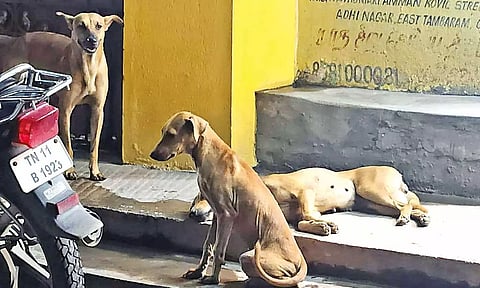

CHENNAI: A stray dog that mauled 29 persons in Old Washermenpet on Tuesday in North Chennai tested positive for rabies on Friday. The Greater Chennai Corporation (GCC) has intensified its drive to catch stray dogs in the city and currently observing 31 dogs that were caught in Old Washermenpet and Royapuram in the last two days.
“The autopsy report of the carcass from Madras Veterinary College Hospital revealed that the stray dog has been confirmed with rabies. The stray dogs in the area are under surveillance and if any have rabies symptoms steps would be taken accordingly. Also, we are monitoring the 29 people who were bitten by the rabies-infected dog and urged to take second dose of anti-rabies vaccination,” Dr J Kamal Hussain, veterinary officer, GCC told DT Next.
As per, the Chennai Corporation data more than 17,000 stray dogs have been sterilized and vaccinated against rabies from January 1 to November 23 this year. The civic body has 16 vehicles and adequate manpower to catch the stray dog across the city. The civic authorities urged the public to adopt stray dogs with proper maintenance instead of just feeding the animals.
Experts advised people to get anti-rabies vaccination within 12 hours of a dog bite to avoid the virus entering the body. If the person failed to get vaccinated they would die within a month.
“The rabies-infected dogs would be active and keep running. Sometimes they might even go to other areas and when they end up fighting with other stray dogs they would get rabies. It is a deadly disease among the canine. The civic body should isolate the rabies-infected stray dog for 10 days so it will not spread among other dogs in the locality,” said Dr R Sokkalingam, a veterinarian.